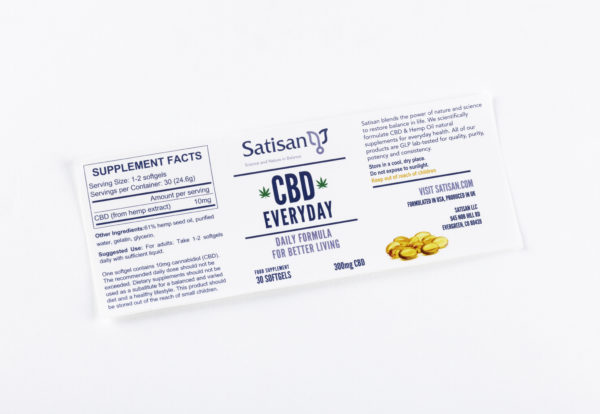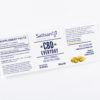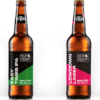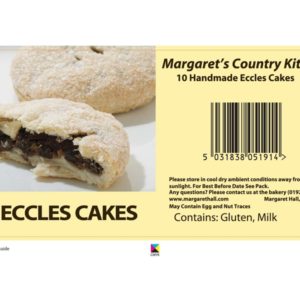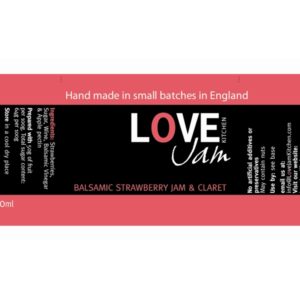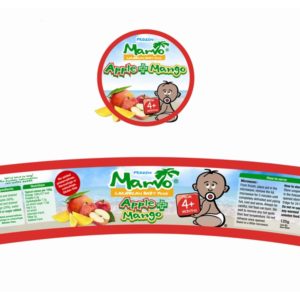CBD Oil Labels
Home / Full Product Range / Food and Drink Labels / CBD Oil Labels
CBD Oil Labels FAQs
CBD stands for Cannabidiol, which is a naturally occurring compound found in the cannabis plant. It is one of over 100 cannabinoids and is widely used for its potential therapeutic benefits. Unlike THC (Tetrahydrocannabinol), another well-known cannabinoid, CBD is not psychoactive, meaning it does not produce a “high” sensation. It is crucial for businesses to accurately label their CBD oil products to inform consumers and comply with legal standards.
In the United Kingdom, CBD and THC are both cannabinoids derived from the cannabis plant, yet they differ in several key aspects. THC is a psychoactive compound that induces a ‘high,’ whereas CBD does not have this effect. Legally, THC is a controlled substance in the UK, making its sale and use restricted. On the other hand, CBD is permitted as long as it contains less than 0.2% THC. While CBD is commonly used for conditions such as anxiety and chronic pain, the medical use of THC is more limited due to its psychoactive properties. Additionally, THC is typically screened for in drug tests, whereas CBD is not.
Yes, CBD oils are legal in the UK as long as they contain less than 0.2% THC and are derived from EU-approved industrial hemp strains. Regulation is overseen by the Food Standards Agency (FSA), which mandates that businesses must hold a validated Novel Foods License to sell CBD products. For businesses, using compliant CBD oil labels and stickers is essential for adhering to these regulations and providing consumers with accurate information.
To demonstrate that a CBD oil product is legitimate and compliant with UK regulations, the following information should be clearly displayed on the CBD oil labels and stickers:
Product Name: Clearly state that the product is CBD oil.
CBD Concentration: Indicate the amount of CBD in milligrams or as a percentage.
THC Content: Must specify that the THC content is below 0.2% to comply with UK law.
Batch Number: For traceability in case of recalls or quality checks.
Expiration Date: To ensure the product is used within a safe timeframe.
Ingredients List: All ingredients should be listed, including any carrier oils or additives.
Manufacturer Details: Include the name and contact information of the manufacturer.
Directions for Use: Guidelines on how to use
Warnings: Any necessary disclaimers or cautions, such as “Keep out of reach of children.”
Certifications: If applicable, include any third-party lab certifications to verify the product’s quality.
the product safely.
We provide labels for a range of CBD products, but here are the most common ones:
CBD Oils and Tinctures: Liquid extracts that can be taken sublingually or added to food and drinks.
CBD Capsules and Tablets: Pre-measured doses of CBD in pill form.
CBD Topicals: Creams, balms, and lotions infused with CBD for external application.
CBD Edibles: Food products like gummies, chocolates, and beverages that contain CBD.
CBD Vape Products: E-liquids and cartridges designed for vaping CBD.
CBD Pet Products: Oils, treats, and other products formulated specifically for pets.
CBD Cosmetics: Skincare products like serums, face masks, and moisturisers containing CBD.
CBD Isolates: Pure CBD in the form of crystals or powder.
CBD Patches: Transdermal patches that release CBD over time.
CBD Oil Labels FAQs
CBD stands for Cannabidiol, which is a naturally occurring compound found in the cannabis plant. It is one of over 100 cannabinoids and is widely used for its potential therapeutic benefits. Unlike THC (Tetrahydrocannabinol), another well-known cannabinoid, CBD is not psychoactive, meaning it does not produce a “high” sensation. It is crucial for businesses to accurately label their CBD oil products to inform consumers and comply with legal standards.
In the United Kingdom, CBD and THC are both cannabinoids derived from the cannabis plant, yet they differ in several key aspects. THC is a psychoactive compound that induces a ‘high,’ whereas CBD does not have this effect. Legally, THC is a controlled substance in the UK, making its sale and use restricted. On the other hand, CBD is permitted as long as it contains less than 0.2% THC. While CBD is commonly used for conditions such as anxiety and chronic pain, the medical use of THC is more limited due to its psychoactive properties. Additionally, THC is typically screened for in drug tests, whereas CBD is not.
Yes, CBD oils are legal in the UK as long as they contain less than 0.2% THC and are derived from EU-approved industrial hemp strains. Regulation is overseen by the Food Standards Agency (FSA), which mandates that businesses must hold a validated Novel Foods License to sell CBD products. For businesses, using compliant CBD oil labels and stickers is essential for adhering to these regulations and providing consumers with accurate information.
To demonstrate that a CBD oil product is legitimate and compliant with UK regulations, the following information should be clearly displayed on the CBD oil labels and stickers:
Product Name: Clearly state that the product is CBD oil.
CBD Concentration: Indicate the amount of CBD in milligrams or as a percentage.
THC Content: Must specify that the THC content is below 0.2% to comply with UK law.
Batch Number: For traceability in case of recalls or quality checks.
Expiration Date: To ensure the product is used within a safe timeframe.
Ingredients List: All ingredients should be listed, including any carrier oils or additives.
Manufacturer Details: Include the name and contact information of the manufacturer.
Directions for Use: Guidelines on how to use
Warnings: Any necessary disclaimers or cautions, such as “Keep out of reach of children.”
Certifications: If applicable, include any third-party lab certifications to verify the product’s quality.
the product safely.
We provide labels for a range of CBD products, but here are the most common ones:
CBD Oils and Tinctures: Liquid extracts that can be taken sublingually or added to food and drinks.
CBD Capsules and Tablets: Pre-measured doses of CBD in pill form.
CBD Topicals: Creams, balms, and lotions infused with CBD for external application.
CBD Edibles: Food products like gummies, chocolates, and beverages that contain CBD.
CBD Vape Products: E-liquids and cartridges designed for vaping CBD.
CBD Pet Products: Oils, treats, and other products formulated specifically for pets.
CBD Cosmetics: Skincare products like serums, face masks, and moisturisers containing CBD.
CBD Isolates: Pure CBD in the form of crystals or powder.
CBD Patches: Transdermal patches that release CBD over time.


